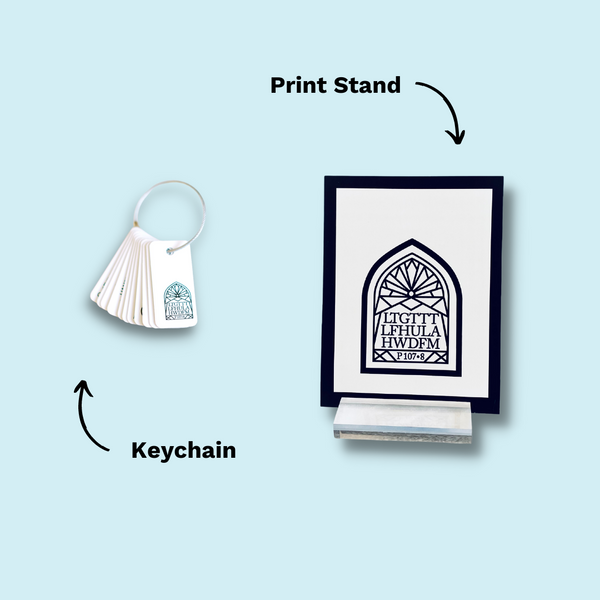"As far as the east is from the west, so far has he removed our transgressions from us.” — Psalm 103:12
“I know God forgives me, but I can’t forgive myself.”
Few among us haven’t made a statement like this at some point in our lives. We know the truth that God promises in Psalm 103:12: “as far as the east is from the west, so far has he removed our transgressions from us.” But many of us find it difficult to receive and rest in this truth.
It isn’t that the truth isn’t compelling. In fact, this grace made possible by the death and resurrection of Jesus Christ is the best news—the greatest gift—we could receive. For those of us who have put our trust in Jesus, when we confess our sin, God sees Christ’s perfection in us as if it were our own! There is nothing we have to do to earn this joy. All we have to do is receive what Christ has already done. What this means for you and me is that we can live from the reality that we are securely loved instead of trying to live for our security and love.
Why would we refuse such a gift?
For many of us, lies about our identity, such as the lie that we are unlovable or defective, have become so familiar to us that it seems inconceivable that such a gracious, loving message could be true. After all, our brains will prefer a familiar lie to an unfamiliar truth. Some of us are waiting for the people in our lives that gave us these damaging messages about our personhood in the first place to correct those lies. Others of us are looking for the stamp of approval from someone else in our lives to give us permission to forgive ourselves and enjoy the grace God freely gives. Still others of us are committed to being our own savior and earning our own way. We are sure that a perfect performance from ourselves will offer us assurance that we are somehow deserving of this grace.
But the defining characteristic of grace is that it is unearned. We cannot do for ourselves what Christ has already done. And, the reality is, God will not shove this gracious gift into our hands. The gift is real. The gift is true. And our response to the gift does not change its validity. But God does give us a choice about whether or not we will receive the gift.
What will we choose?
In his profound book Counterfeit Gods, Timothy Keller wisely said: “When people say, ‘I know God forgives me, but I can’t forgive myself,’ they mean they have failed an idol, whose approval is more important to them than God’s.” In other words, rejecting God’s forgiveness of us is a sign that we are valuing something or someone over and above God.
If, like me, you have found yourself hesitant to receive God’s forgiveness of you, you must ask yourself what idol’s approval has become more important than God’s. Whose approval or praise would make us feel more special or more valuable? What is the achievement that we believe would make us feel more significant or secure? What is the desire we are holding so tightly that its outcome has the potential to shift our ideas about the goodness of God? These are just a few of the questions that can help us get honest about what keeps us from celebrating the gift of God’s grace in our lives.
Speaking personally, I will share that when I refuse to enjoy the gift of God’s unearned grace in my life, it is because I have chosen to trust the false safety and significance of my own perfect performance, which is just a fancy form of control. It feels vulnerable to accept the truth that I am loved because of what God has done for me, not because of what I can do for Him. So, I tend to manage this vulnerability of owning my need for Christ by seeking approval with perfection and performance. But our own goodness will never be the hope that saves us. Whether it’s a perfect performance, winning others’ approval, accomplishing a goal, fulfilling a dream, or another idol entirely, it will ultimately fail to give us the significance and security that we seek and serve as a barrier to celebrating God’s grace.
Perfection in the eyes of the law was never meant to be our hope. The law was designed to build anticipation for the One who would fulfill every letter of the law. Our shortcomings are ours to confess. They are not ours to fix. Instead, we have been given the unearned gift of a Savior who has fixed himself to a cross, canceling our debt and reconciling our relationship with the Father.
So, if there is a barrier between us and receiving God’s forgiveness and celebrating His grace, that is us, not God. Jesus granted us all the permission we ever needed to celebrate the good news that we are forgiven and our transgressions are forgotten, removed from us as far as the east is from the west.




